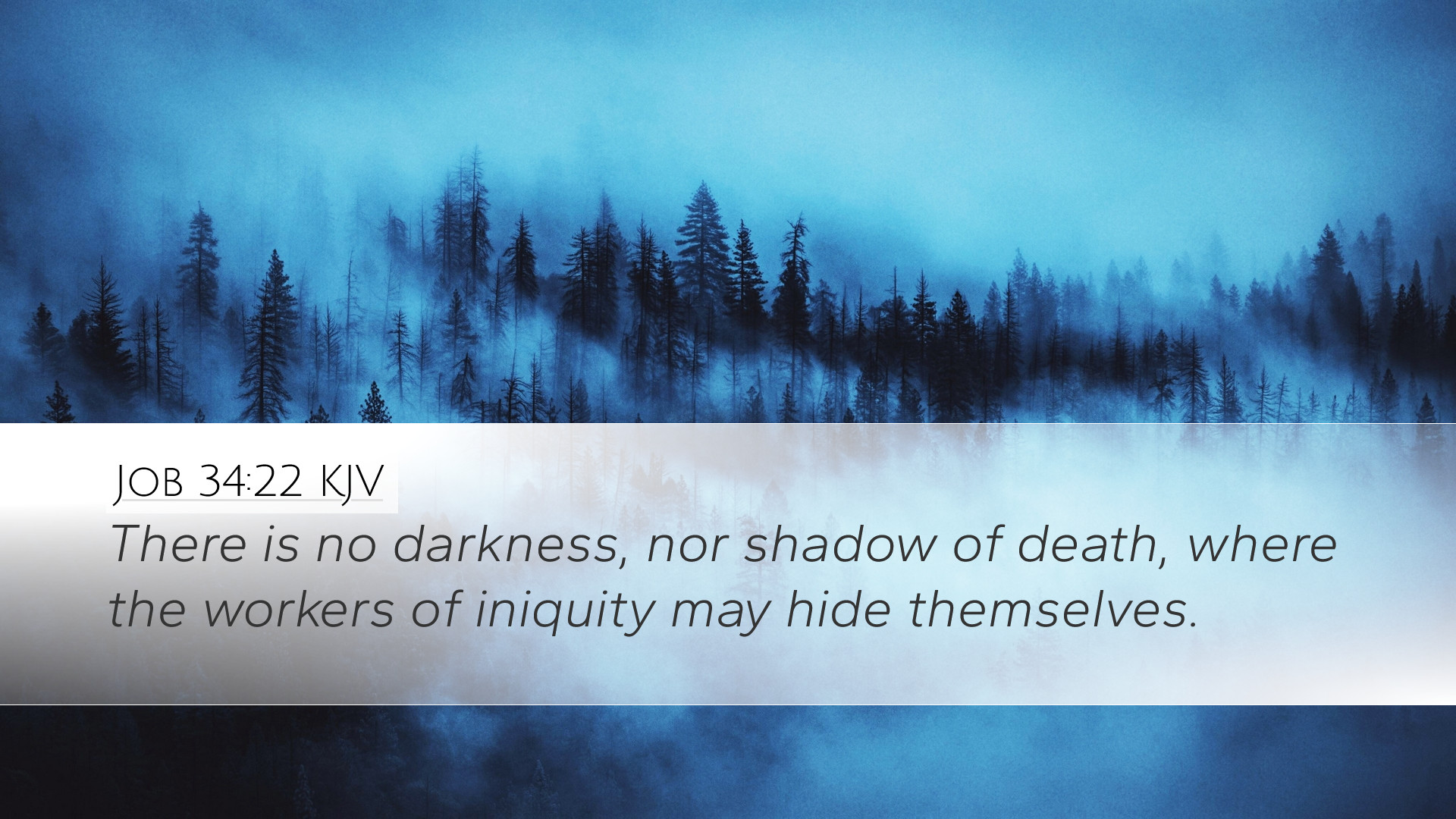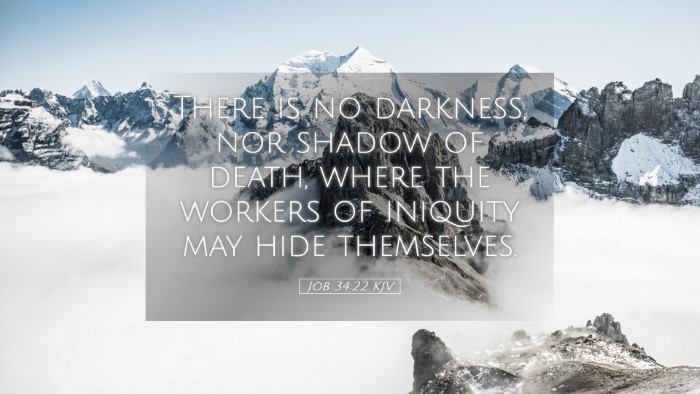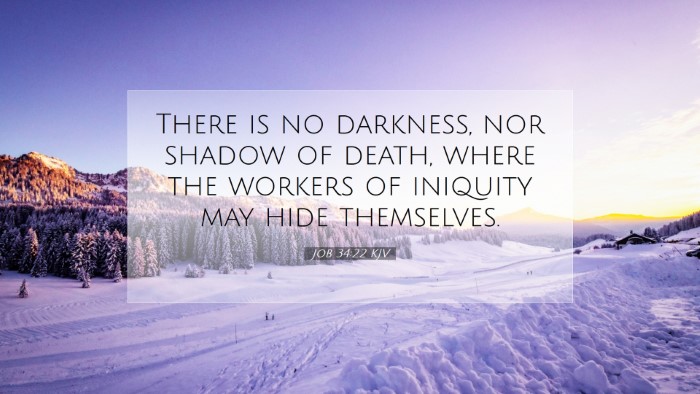Commentary on Job 34:22
Job 34:22 states: "There is no darkness, nor shadow of death, where the workers of iniquity may hide themselves." This verse is characterized by its profound theological implications regarding divine justice and the omnipresence of God. Commentary from various public domain sources provides a richer understanding of this passage.
Overview and Context
The Book of Job is a poetic narrative that explores profound questions about suffering, divine justice, and the nature of God. In Chapter 34, Elihu, a younger friend of Job, speaks to the nature of God's justice, emphasizing that God’s governance of the world does not permit the wicked to evade accountability.
Interpretation of Job 34:22
The core idea in Job 34:22 is the absolute visibility of God in the administration of justice. As noted by Matthew Henry, the verse asserts that there is no refuge for the wicked; darkness cannot conceal them from God’s scrutiny:
- God's Omniscience: Everything is exposed to Him. Henry emphasizes that, “The keen eye of God sees through every shadow and hidden crevice.”
- Inescapability of Justice: Barnes expounds that, “No avenue is left for the wicked to hide, as divine justice is inescapable. The metaphor of darkness indicates a lack of refuge.”
Theological Insights
Elihu’s discourse can be seen as an effective reminder that God's judgment is not only inevitable but also comprehensive. God’s scrutinizing gaze reveals the frailty of human attempts to evade accountability:
- Divine Justice: Clarke observes, “This passage reinforces the doctrine that God's moral order prevails, regardless of human machinations.”
- Moral Accountability: The verse challenges humanity to reflect on their moral standing before an all-seeing God. The wicked are often lulled into a false sense of security by the absence of immediate retribution.
Implications for Pastors and Theologians
This verse provides critical insight for pastoral care and theological education:
- Preaching on Divine Justice: Pastors can emphasize God’s relentless ability to see and know all, which should encourage holiness among congregants and impart a sense of moral accountability.
- Encouragement for the Righteous: This verse can serve as a comfort to those suffering injustice, affirming that God sees their plight and will respond accordingly, as noted by Henry, “Though the eyes of the world may be blind, the eyes of God are not.”
Applications for Students and Scholars
For scholars and students of theology, Job 34:22 invites deep engagement with the nature of evil and divine justice:
- Philosophical Reflection: Scholars may explore the problem of evil in the light of God’s omniscient justice. How does one reconcile human suffering with the belief in a just God?
- Exegetical Studies: Textual analysis of the original Hebrew terms and their semantic fields could yield insights into how ancient audiences understood these concepts of darkness and justice.
Conclusion
Job 34:22 serves as a sobering reminder of the inescapable nature of God’s justice. It challenges believers to pursue righteousness and reminds the wicked of the futility of trying to hide from divine scrutiny. Furthermore, it fosters a deeper understanding of God's moral governance, encouraging theological reflections, pastoral applications, and scholarly discussions. As such, this verse remains a vital passage within the broader narrative of Job, offering both comfort and conviction to its readers.


